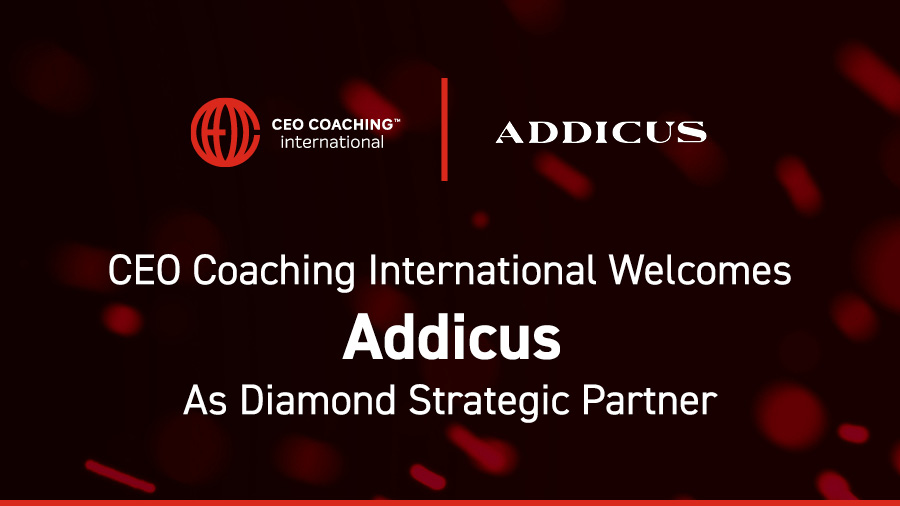
Guest: Randy Koch, a coach at CEO Coaching International. Randy drew on his 11 years of AI and Data experience to build CEO Coaching International’s CEO AI Roadmap Product (AI Strategy for CEOs). He also leads AI Strategy Workshops with our clients and coaches.
Quick Background: The hype around AI is so BIG that many CEOs struggle to zero in on two-to-three specific, practical, and actionable applications. That’s where our CEO AI Roadmap comes in. The combination of our proven best practices and cutting-edge analysis of the latest AI trends will help CEOs develop a comprehensive AI strategy that delivers BIG results.
On today’s show, Randy Koch gives an overview of the process CEOs can use to build their own CEO AI Roadmaps, leverage AI to its full potential, and Make BIG Happen.
Keys to Building and Implementing Your CEO AI Roadmap from Randy Koch
1. Ask “Three Killer AI Questions.”
Often the BIGGEST obstacle between CEOs and change is knowledge. If the latest disruption falls outside of — or challenges — the CEO’s area of expertise, they may not want to rock the boat. But this is a misunderstanding of the CEO’s role.
“You’re not supposed to be the expert,” Randy Koch says. “Don’t get paralyzed by thinking you have to be the expert. Your job is to set the vision and set the strategy.”
Clear this roadblock by taking in the 30,000-foot view of AI and your industry. Ask yourself and your leadership team, on a scale of 1 to 10:
- How much impact will AI have on our industry in the next 10 years?
- How much will AI impact our business specifically?
- How good is our current AI strategy?
“We’ve literally asked these questions to 100 companies,” Randy says. “Question number two, how much will AI impact your business, on average the answer is nine. And question three, how good is your current AI strategy, on average that rating is two. So you have this BIG gap between how will AI affect your business and do you really have a strategy. If you have a delta bigger than two between those two questions, then it’s crystal clear: you have to build an AI strategy right away.”
2. Conduct a CEO AI Roadmap Workshop
“At CEO Coaching, we spent six months building a CEO AI Roadmap,” Randy says. “It’s a simple, one-page framework, and we have four steps:”
- Identify the potential AI initiatives that will have the BIGGEST impact on the company.
- Link those AI initiatives to the business priorities of the company.
- Plot those initiatives on a framework that measures impact.
- Decide if each initiative is a “buy” or “build” initiative for the company and if your data is ready for implementation.
The CEO AI Roadmap also provides the metrics that CEOs and their teams will need to track, measure, and manage the KPIs that the AI strategy should be driving towards BIG.
“Once you have the roadmap established, the Y axis is the ROI,” Randy says. “So whether we’re plotting quick wins or game-changing ideas, part of the CEO’s role with their team is to actually establish the value of that initiative. Before we embark on any of those initiatives, we’re going to know the exact ROI we’re going to be looking for. And we’re going to know the timeline. Much like any other initiative, we’re going to have our expected business case and when we expect to have it done. And because we’re revisiting it quarterly, we’re just moving it along the roadmap. So we’ll know the exact success of those initiatives.”
3. Execute Your CEO AI Roadmap.
Most companies work through a three-step process to put their new CEO AI Roadmap into play:
- Get a quick win.
- Start gathering data.
- Develop your game changer.
For example, Randy used our framework to help one of his CEO coaching clients build a CEO AI Roadmap for their outsourcing company. Starting with The Three Killer AI Questions, the CEO expected AI would have a 9/10 impact on both their firm and their industry. They identified faster hiring and automating customer service as two AI initiatives that could have the BIGGEST potential impact.
The quick win was hiring. “Hiring the right people for your company is critical,” Randy says. “One thing AI is great at right now is the ability to look at resumes: match resumes to job descriptions, even generate a job description and find the right match. So this company was able to say, ‘If we totally rethought our hiring process, we could hire people faster and more accurately. That’s in the ‘quick win’ stage because those products already exist.”
However, Randy’s clients did need to start gathering new data in order to keep improving their hiring initiative, and to lay the groundwork for their BIG game changer.
“They wanted to automate 90% of what that actual professional does in their customer service role,” Randy says. “It might even become an avatar in a bot. But that’s going to take some data. It’s going to necessitate that we build a ‘data lake,’ and then we’re going to have to make sure that data feeds the actual avatar in the actual conversation that happens with the actual customer.”
It’s easy to anticipate some pushback and even pain points along the way from designing a CEO AI Roadmap to implementing it. Yes, talk of bots and data lakes will make many employees worry about job security. But the workers most likely to lose their jobs are the ones who aren’t willing to scale their skills along with the company’s goals. Do you really want those people working for you?
To build on Randy’s example, the HR employee who will save hours of time sifting through resumes and writing job descriptions should have more time for person-to-person tasks that add real value to the company, such as conducting interviews, scouting for talent, and improving onboarding for new hires. Anyone who can’t see the transformative value of having their own AI assistant, and who won’t leverage AI to improve their own performance, risks falling behind the curve permanently.
And that includes the CEO.
“At the end of the day, the CEO has three choices around AI,” Randy says. “You can do nothing, which obviously I don’t advise. Two, you can try to create an internal strategy with whatever framework you currently have. Or, three, leverage CEO Coaching International’s CEO AI Roadmap. I truly believe it’s world class, it’s simple, and it’s linked to your business strategy.”
To immerse yourself in the future of AI, register now for the 2024 Make BIG Happen Summit, April 26-27 in Miami Beach.
Top Takeaways
1. The hype is real. AI is going to change your business. CEOs have to figure out by how much and how ready their companies are.
2. You’re already behind if you don’t have an AI Roadmap. The longer you wait, the less likely your chances of catching up to the competition.
3. Tried-and-true best practices will work with AI if you plan thoroughly and follow through by tracking, measuring, and managing relevant KPIs.
About CEO Coaching International
CEO Coaching International works with CEOs and their leadership teams to achieve extraordinary results quarter after quarter, year after year. Known globally for its success in coaching growth-focused entrepreneurs to meaningful exits, the firm has coached more than 1,500+ CEOs and entrepreneurs across 100+ industries and 60 countries. Its coaches—former CEOs, presidents, and executives—have led businesses ranging from startups to over $10 billion, driving double-digit sales and profit growth, many culminating in eight, nine, or ten-figure exits.
Companies that have worked with CEO Coaching International for two years or more have achieved an average revenue CAGR of 25.9%, nearly 3X the U.S. average, and an average EBITDA CAGR of 39.2%, more than 4X the national benchmark.
Discover how coaching can transform your leadership journey at ceocoachinginternational.com.
Learn more about executive coaching | Meet our world-class coaches







